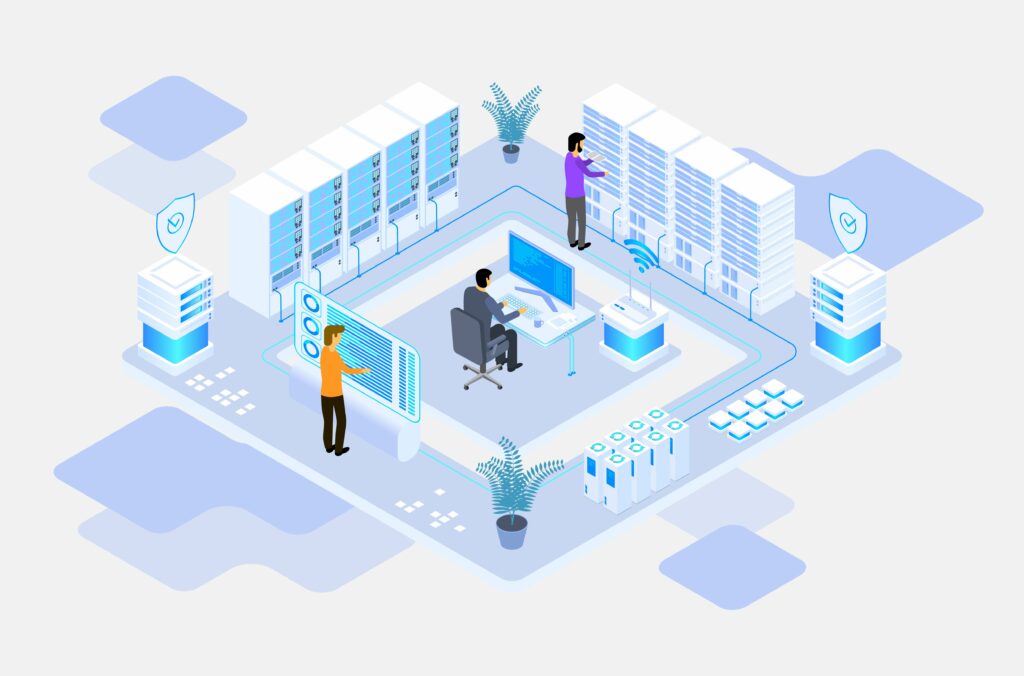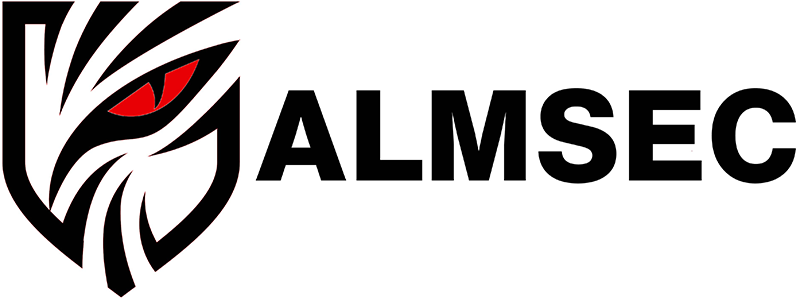What Is a Security Operations Center (SOC) Analyst?
A Security Operations Center (SOC) Analyst monitors, evaluates, and takes action to protect a company’s computer networks and systems from security threats. A SOC Analyst is responsible for all of the day-to-day activities related to ensuring that an organization’s IT infrastructure remains secure.
A really good way to learn more is to join the Almsec Academy on Skool, it’s a community with free courses on well known certifications and a friendly community with peers to discuss with.
This includes responding to alerts and incidents in an EDR, analyzing network traffic and system logs, and responding to other security incidents.
SOC Analysts must stay up-to-date on the latest cyberthreats and have excellent investigative skills in order to effectively respond to potential attacks or malicious activity.

What types of incidents are typical in a SOC?
SOC Analysts are typically responsible for responding to a variety of security incidents, including malware infections, ransomware attacks, phishing attempts, privilege misuse and escalation attempts.
In addition, SOC Analysts may also need to respond to insider threats, denial of service attacks, zero-day vulnerabilities and other advanced persistent threats.
SOC Analyst Requirements and Qualifications
A degree in computer science, information technology, cybersecurity engineering or a related field is often required for this role. Additionally, SOC Analysts must have excellent problem-solving skills and be comfortable working with various software and hardware tools.
The ability to work independently as well as in a team environment is essential. Candidates should also demonstrate knowledge of scripting languages such as Python and PowerShell.
How to land your first job as a SOC Analyst
By diligently following these steps and giving your all at each stage in this video, you’re setting yourself up for success. I am giving away the framework for how to get interviews for cyber security roles and succesfully smashing them and landing that dream job of yours.
Which tools and services does a SOC analyst use
When you become A SOC analyst you will come across multiple different tools and services in their line of work. Some of the common security tools you will work are:
SIEM (Security Information and Event Management) – SIEM tools such as Splunk, IBM QRadar, and LogRhythm are essential for collecting and correlating data from various sources, such as logs, network traffic, and user activity, to detect and respond to security incidents.
- Endpoint Detection and Response (EDR) – EDR tools such as Microsoft Defender for Endpoints, CrowdStrike, Carbon Black and SentinelOne provide real-time visibility into endpoint activity to detect and respond to advanced threats and malware to prevent security breach.
- Vulnerability Scanning and Management – Vulnerability management tools such as Tenable Nessus, Rapid7 Nexpose or InsightVM, and Qualys Vulnerability Management can help identify and prioritize vulnerabilities in the network and assets to find and prevent potential cyber threats by performing vulnerability assessments.
- Network Analysis and Forensics – Network analysis tools such as Wireshark, NetWitness, and Snort can capture and analyze network traffic to detect suspicious activity and investigate security incidents of affected systems or accounts.
- Threat Intelligence – Threat intelligence tools such as FireEye, Recorded Future, and ThreatQuotient provide information on known and emerging threats and help identify indicators of compromise (IOCs) to prevent and respond to security incidents.
- Identity and Access Management (IAM) – IAM tools such as Okta, Microsoft Active Directory, and Ping Identity help manage user identities, access, and authentication to prevent unauthorized access.
This list of SOC analyst tools is by no means exhaustive, but are commonly used to identify threats and to report security data.

SOC Analyst Skills
In order to be successful in this role, an SOC Analyst must possess the following skills:
• Knowledgeable in network security protocols and software tools used to protect networks;
• Excellent investigative skills;
• Ability to analyze large amounts of data and draw meaningful conclusions;
• Ability to generate reports and communicate effectively with all levels of management;
• Expertise in security information and event management (SIEM) systems;
• Proficient understanding of malware analysis and reverse engineering techniques;
• Experience with scripting languages such as Python and PowerShell.
SOC analyst career path
I strongly recommend you join the Almsec Academy on Skool, it’s a community with free courses on well known certifications and a friendly community with peers to discuss with.
SOC Analysts usually start out in entry-level SOC positions and work their way up to more advanced roles. As they gain experience, SOC Analysts can pursue certification programs or specialize in certain areas such as incident response, threat intelligence, forensics analysis, etc.
The natural progression path is to stay within the SOC team and move from L1 to L2 to L3 SOC Analyst. Along the way it is also common to acquire more responsibilities such as threat hunting, incident response, computer forensics.
They may also move up into managerial positions and lead a team of analysts. The possibilities for growth for a cybersecurity professional are numerous; it is an ever-evolving industry that presents great career opportunities for those with the right skills and dedication.

SOC analyst certification and training
Some of the certifications that helps to become a SOC Analyst include Security+, Network+, Microsoft SC-900. In addition to certifications, SOC Analysts need to develop a strong understanding of both offensive and defensive security measures. This includes learning how to use various tools and technologies such as SIEM, antivirus software, firewalls, identity management systems, etc.
There are several pathways to gain in depth knowledge and credibility such as Blue Team Labs Online, and despite being promoted to be in the offensive realm training programs such as TryHackMe and Hack The Box. Solving these challenges will in undoubtedly make you a better security operations center analyst and dealing with potential security threats. This also shows you have an interesting in this and that will come a long way when applying for a position.
SOC analyst skills
In order to be successful in this role, a SOC Analyst must possess the following skills:
- Basic understanding of network security protocols and software tools used to protect networks
- Excellent investigative skills
- Ability to analyze large amounts of data and draw meaningful conclusions
- Good communication and customer service skills to interact with internal personnel and external stakeholders
- Strong understanding of cyber threats, such as malware, ransomware, phishing attacks, etc
- Knowledgeable in firewall configuration and management
- Experienced in incident response tools and procedures
- Know when to escalate the incident to the next step in the process

The role of a SOC Manager
A Security Operations Center (SOC) Manager is responsible for overseeing the daily operations of a company’s SOC, which is a centralized unit that is tasked with monitoring, detecting, investigating, and responding to security threats to the organization’s computer systems, networks, and data. The primary role of a SOC manager is to ensure that the SOC team is operating efficiently and effectively to protect the organization from cyber attacks.
Some of the specific responsibilities of a SOC manager may include:
- Developing and implementing security policies and procedures to safeguard the organization’s assets and data.
- Managing a team of security analysts and incident responders, including hiring, training, and performance evaluations.
- Ensuring that the SOC is adequately staffed and resourced to meet the organization’s security needs.
- Overseeing the SOC’s incident response process, including triaging, investigating, and resolving security incidents in a timely and effective manner.
- Collaborating with other departments and business units to ensure that security is integrated into all aspects of the organization’s operations.
- Developing and managing the SOC’s budget and resource allocation to ensure that the SOC is cost-effective and efficient.
- Staying up-to-date on the latest security threats, trends, and technologies to ensure that the SOC is prepared to respond to new and emerging threats.
Overall, a SOC manager plays a critical role in ensuring that an organization’s security posture is strong and resilient against cyber attacks.
What does a L1 SOC Analyst do?
The Level 1 SOC Analyst works in a Security Operations Center (SOC) and is the first line of defense against cyber security threats and stopping future security breaches. This role is the entry level SOC analyst. They are responsible for monitoring, documenting, and triaging incoming security events.
To do this, they must have an understanding of operational security processes and procedures as well as a strong knowledge of common attack patterns and incident response techniques and hands-on experience from relevant security tools.
Additional responsibilities may include conducting initial investigations, escalating incidents to Level 2 or 3 analysts as needed, and providing feedback on security controls.
The ideal candidate might have a Bachelor’s degree in Computer Science, Information Technology, Cybersecurity or a related field; however experience in a similar role and a genuine interest is also beneficial. Certifications such as CompTIA Security+, CompTIA Network+, Microsoft SC-900 and other industry certifications are also highly recommended.
In conclusion, the Level 1 SOC Analyst plays an essential role in providing an organization with the first line of defense against cyber security threats. They must have a strong understanding of operational security processes, incident response techniques, and commonly used attack patterns in order to effectively triage incoming security events. With hard work and dedication, the Level 1 SOC Analyst can look forward to a successful career in the field of cybersecurity.
What does a L2 SOC Analyst do?
The L2 SOC Analyst is responsible for monitoring and analyzing the organization’s networks and systems on a daily basis to detect, identify, investigate, and mitigate potential threats. They must be able to identify anomalous behavior, recognize patterns of malicious activity, and take appropriate corrective action.
In addition to their daily duties, the L2 SOC Analyst will provide recommendations for improving security posture and assist with incident response plans, policies, and procedures. Some additional responsibilities may include recommending tools or solutions, participating in audit activities, providing reporting on security events/incidents and collaborating with other teams across the organization.
The L2 SOC Analyst should possess a strong understanding of both offensive and defensive security measures as well as an extensive knowledge of various software tools used to protect networks.
The ideal candidate should have advanced problem-solving skills and a background in cybersecurity engineering; however experience in a similar role is also
What does a L3 SOC Analyst do?
The L3 SOC Analyst is responsible for the investigation and resolution of complex security issues. They should be able to identify, investigate, and contain advanced threats and malware as well as perform root cause analysis in order to prevent future incidents.
The L3 SOC Analyst should also have experience with incident response procedures and be able to lead teams during cyber-attack investigations. Additional responsibilities may include developing threat intelligence solutions, providing recommendations for improving security posture, participating in audit activities, collaborating with other teams across the organization, and creating detailed documentation concerning incidents and investigations.
In order to effectively fulfill their duties the L3 SOC Analyst must possess advanced analytical skills along with an extensive knowledge of various software tools used to protect networks.
The ideal candidate should have a Bachelor’s degree in Computer Science, Information Technology, Cybersecurity or a related field; however experience in a similar role is also beneficial.
Certifications such as MS-500, SC-200, SC-100, and other industry certifications are also highly recommended.
In conclusion, SOC Analysts play an essential role in protecting organizations from cyber threats and potential security breaches. The job requires many skills and competencies that can be acquired through education qualification, certification training, and on-the-job experience. As the demand for cybersecurity professionals continues to grow, the career outlook for SOC Analysts is very promising. With hard work and dedication, one can look forward to advancement opportunities into senior roles such as Security Operations Manager or even Chief Security Officer.
What Is the Difference Between an SOC Analyst and a Cybersecurity Engineer?
A SOC Analyst is responsible for monitoring an organization’s networks and systems, responding to security incidents, and providing incident response services. A Cybersecurity Engineer is responsible for designing, building, and maintaining secure computer networks. They work with a variety of technologies such as firewalls, intrusion detection systems (IDS), and encryption methods in order to create a secure environment. While both roles are important to an organization’s security posture, they differ in the technical skills and qualifications required. In order to become a Cybersecurity Engineer, higher level education such as a degree or certification in cyber security engineering is often necessary. SOC Analysts may be able to gain experience through on-the-job training and less formal education. SOC Analysts must have strong analytical, problem-solving, and communication skills in order to successfully carry out their duties. They must also have a working knowledge of both offensive and defensive security concepts as well as experience with specific security tools such as SIEM, antivirus software, firewalls.

SOC Analyst Job Market Trends
The job market for SOC Analysts is growing rapidly as threats to cyber security continue to evolve. The demand for these professionals has been steadily increasing due to the need for organizations to protect themselves from cyber-attacks.
According to the U.S. Bureau of Labor Statistics, employment in the cybersecurity field is projected to grow by 32% over the next decade, which is much faster than the average for all occupations.
As organizations continue to invest more in their security infrastructure and cyber defense technologies, there will be greater demand for experienced SOC Analysts who can provide expert advice and technical support.
With heightened awareness of cyber threats in today’s world, a career as an SOC Analyst offers excellent job security and rewarding long-term opportunities.

In Conclusion
SOC Analysts work in a Security Operations Center and are responsible for being the first line of defense of an organization’s IT infrastructure. They must be knowledgeable in network security protocols, possess excellent investigative skills, have the ability to analyze large amounts of data, and stay up-to-date on the latest cyberthreats.






